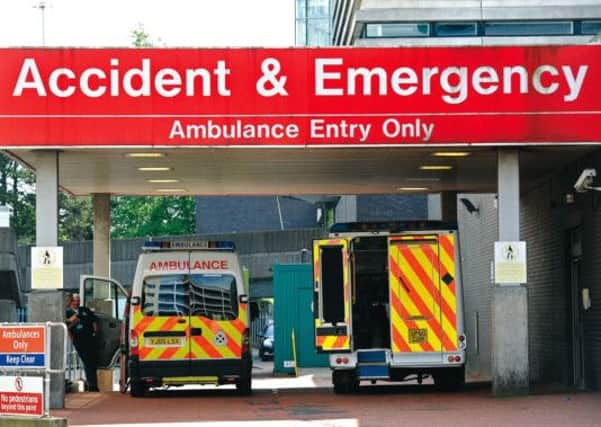Payouts soar for bungled NHS care


Among the health boards which saw costs dramatically increase was NHS Lothian, with more than £11.5 million paid out in 2013-14, compared with £1.3m the previous year.
Nine out of 13 boards which responded to a Freedom of Information request for their total payouts for clinical negligence claims saw their bills rise in 2013-14.
Advertisement
Hide AdAdvertisement
Hide AdAnother, NHS Tayside, revealed its payouts rose from £1.4m to almost £3.3m, while in Fife they increased from £620,000 to £2.7m in 2013-14.
The increases come after plans to introduce a no-fault compensation scheme in Scotland to replace the more adversarial clinical negligence process were delayed due to concerns about the potential for soaring costs.
In total, the 13 boards which responded to Scotland on Sunday’s request for information paid out almost £23.5m in compensation for clinical negligence in 2013-14 – up from just under £14m the previous year.
NHS Greater Glasgow and Clyde, Scotland’s biggest health board, was the only board to refuse to reveal its most recent compensation figures, saying these would be published later this year.
However, if it saw costs similar to its 2012-13 bill of more than £39m, Scotland could be set for a record total bill of more than £60m in 2013-14. This compares to £54m in 2012-13, £37m in 2011-12 and the previous high of £55.2m in 2010-11.
Boards also face compensation bills in non-clinical cases, such as in employment disputes or for accidents occurring on their land.
Last year, such claims totalled £2.8m across the 13 responding boards, compared with just over £2m the previous year.
Last month, in response to a review recommending a no-fault compensation scheme where patients would not have to prove negligence to receive a payout, the Scottish Government said more work was needed on how such a programme would work.
Advertisement
Hide AdAdvertisement
Hide AdIt followed concerns raised in a consultation about the potential costs if no-fault compensation was introduced in Scotland.
Cameron Fyfe, a medical negligence specialist at legal firm Drummond Miller, said he believed rising compensation costs seen last year were because patients were now more aware of their right to claim for medical negligence.
Patrick Mcguire, a partner with Thompsons Solicitors, said there were many reasons why costs could have risen in the last year.
“There could have been more high-value claims, or it may actually be because the NHS are fighting the cases harder and pushing the costs up by requiring solicitors to obtain expensive expert reports,” he said. “One thing it’s not down to is the rise of a so-called compensation culture.”
A Scottish Government spokeswoman said: “We are committed to making sure all patients receive high-quality care from our NHS.
“When a clinical negligence claim is brought against a board, for several reasons beyond the control of the board, it often takes a number of years to conclude. As a result there will be fluctuations in the number of cases settled from year to year.”
Dr David Farquharson, medical director at NHS Lothian, said: “The number of payments made by NHS Lothian each year directly reflects the number of cases settled.”